This English Language quiz is called 'Narrative' and it has been written by teachers to help you if you are studying the subject at elementary school. Playing educational quizzes is an enjoyable way to learn if you are in the 3rd, 4th or 5th grade - aged 8 to 11.
It costs only $12.50 per month to play this quiz and over 3,500 others that help you with your school work. You can subscribe on the page at Join Us
This quiz will challenge you on narrative. 'Narrative' is an impressive word for the writing we simply call 'stories'. Mysteries, fables, legends, science fiction, action - there are so many different types of narrative. You will almost certainly have written quite a few pieces of narrative while you've been at school.
[readmore]
Most people have a favorite type of narrative. And writers tend to have a favorite type to write about. If you have a favorite author, you will probably know what type of book you will be getting.
See how well you understand story-writing by trying this English quiz.
[/readmore]
To see a larger image, click on the picture.
|
1.
|
Which of the following can be used in the opening paragraph of a story? 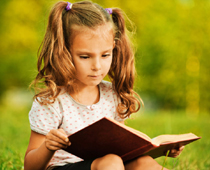
|
|
| [ ] |
A description. |
| [ ] |
Dialog (speech). |
| [ ] |
Action. |
| [ ] |
All of the above. |
|
|
|
2.
|
The people in a story are called ____. 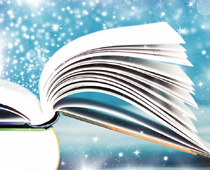
|
|
| [ ] |
actors |
| [ ] |
inhabitants |
| [ ] |
characters |
| [ ] |
friends |
|
|
|
3.
|
'Watch out!' Harry shouted. 'Watch out for what?' Rachael cried. What is wrong with this dialog? 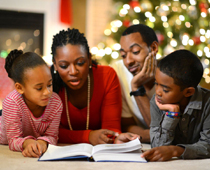
|
|
| [ ] |
Rachael's dialog shouldn't have a question mark. |
| [ ] |
Rachael's dialog should begin on a new line. |
| [ ] |
Rachael's dialog should come first. |
| [ ] |
Harry's dialog shouldn't have an exclamation mark. |
|
|
|
4.
|
A story should NOT be written in which of the following? 
|
|
| [ ] |
First person. |
| [ ] |
Second person. |
| [ ] |
Third person. |
| [ ] |
First or third person. |
|
|
|
5.
|
What is a 'setting'? 
|
|
| [ ] |
The events that happen in a story. |
| [ ] |
The point of view from which a story is told. |
| [ ] |
The main character. |
| [ ] |
The time and place of the story. |
|
|
|
6.
|
What is the name for the events that happen in a story? 
|
|
| [ ] |
Plot. |
| [ ] |
Plan. |
| [ ] |
Writing frame. |
| [ ] |
Dilemma. |
|
|
|
7.
|
When writing a story, how should you tell the reader that a character is bossy? 
|
|
| [ ] |
Use 'bossy' as an adjective for the character. |
| [ ] |
Use a stage direction. |
| [ ] |
Add an aside to the reader ('The others think Alex is bossy'). |
| [ ] |
Include a scene or two where the character is behaving in a bossy manner. |
|
|
|
8.
|
If you make the reader feel excited or unsure, you have successfully ____. 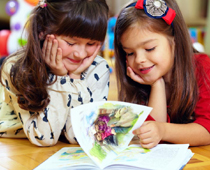
|
|
| [ ] |
built suspense |
| [ ] |
created a character |
| [ ] |
written the dialog |
| [ ] |
summarised the story |
|
|
|
9.
|
What is a dilemma? 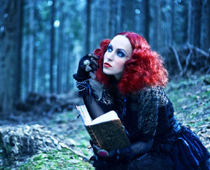
|
|
| [ ] |
The speech between two characters. |
| [ ] |
A tricky situation or problem. |
| [ ] |
A list of events that take place in a story. |
| [ ] |
An unexpected and frightening event. |
|
|
|
10.
|
Before the ending of a story, you should ____. 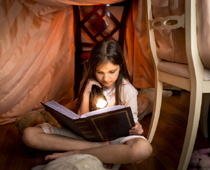
|
|
| [ ] |
write lots of dialog without any explanations |
| [ ] |
introduce a completely new character, as a surprise |
| [ ] |
show how the events or problems were resolved |
| [ ] |
summarise the entire story again for readers who weren't paying attention |
|
|
|
1.
|
Which of the following can be used in the opening paragraph of a story? 
|
|
| [ ] |
A description. |
| [ ] |
Dialog (speech). |
| [ ] |
Action. |
| [x] |
All of the above. |
|
|
|
2.
|
The people in a story are called ____. 
|
|
| [ ] |
actors |
| [ ] |
inhabitants |
| [x] |
characters |
| [ ] |
friends |
|
|
|
3.
|
'Watch out!' Harry shouted. 'Watch out for what?' Rachael cried. What is wrong with this dialog? 
|
|
| [ ] |
Rachael's dialog shouldn't have a question mark. |
| [x] |
Rachael's dialog should begin on a new line. |
| [ ] |
Rachael's dialog should come first. |
| [ ] |
Harry's dialog shouldn't have an exclamation mark. |
|
|
|
4.
|
A story should NOT be written in which of the following? 
|
|
| [ ] |
First person. |
| [x] |
Second person. |
| [ ] |
Third person. |
| [ ] |
First or third person. |
|
|
|
5.
|
What is a 'setting'? 
|
|
| [ ] |
The events that happen in a story. |
| [ ] |
The point of view from which a story is told. |
| [ ] |
The main character. |
| [x] |
The time and place of the story. |
|
|
|
6.
|
What is the name for the events that happen in a story? 
|
|
| [x] |
Plot. |
| [ ] |
Plan. |
| [ ] |
Writing frame. |
| [ ] |
Dilemma. |
|
|
|
7.
|
When writing a story, how should you tell the reader that a character is bossy? 
|
|
| [ ] |
Use 'bossy' as an adjective for the character. |
| [ ] |
Use a stage direction. |
| [ ] |
Add an aside to the reader ('The others think Alex is bossy'). |
| [x] |
Include a scene or two where the character is behaving in a bossy manner. |
|
|
|
8.
|
If you make the reader feel excited or unsure, you have successfully ____. 
|
|
| [x] |
built suspense |
| [ ] |
created a character |
| [ ] |
written the dialog |
| [ ] |
summarised the story |
|
|
|
9.
|
What is a dilemma? 
|
|
| [ ] |
The speech between two characters. |
| [x] |
A tricky situation or problem. |
| [ ] |
A list of events that take place in a story. |
| [ ] |
An unexpected and frightening event. |
|
|
|
10.
|
Before the ending of a story, you should ____. 
|
|
| [ ] |
write lots of dialog without any explanations |
| [ ] |
introduce a completely new character, as a surprise |
| [x] |
show how the events or problems were resolved |
| [ ] |
summarise the entire story again for readers who weren't paying attention |
|
|










